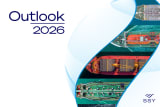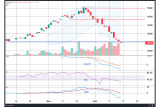
As Japan enters its “Obon” holiday, the markets are reeling from an exceptionally turbulent week, particularly for the Nikkei index. This recent instability, largely attributed to the Bank of Japan’s interest rate hikes and dismal economic data from the United States, led the TOPIX to plummet by over 12.2%—the steepest one-day drop since Black Monday in 1987. While the Nikkei has since staged a near-complete recovery back to where it was before, this abrupt and extreme market volatility could have enduring consequences for economic stability and investor confidence.
Japan has long been regarded as a bastion of market stability, particularly for those with long-term investment horizons. However, this recent surge in volatility has rattled this perception, prompting both domestic and international investors to reassess their exposure to Japanese equities. Should this trend persist, it could precipitate significant capital outflows from the Japanese market, further straining the nation’s economic fabric.
For Japanese shipowners, the full implications of this volatility remains to be seen, but we believe several medium-term risks are on the horizon.
Commodities and Demand
The global market sell-off has reverberated across the commodities sector, mirroring the intense pressure observed in equity markets. Commodities typically respond to such turmoil in varied ways, depending on their market dynamics. However, volatility often signals broader economic anxieties, such as a looming global trade slowdown. Energy commodities, notably oil, have already experienced heightened volatility amid growing fears of a global recession, which could suppress energy demand and further depress prices.
The sharp decline in AI and technology stocks has similarly affected prices for industrial metals like copper, which has fallen off from its peak levels in May of this year.
While agricultural commodities have thus far been somewhat insulated, they are not immune to the broader economic uncertainties. The prospect of a recession could dampen demand, applying additional downward pressure on prices and, by extension, on trade volumes on ships.
Financing and Investments
Increased volatility typically ushers in tighter financial conditions, potentially raising borrowing costs—particularly in the shipping industry, which one may argue falls under alternative finance for many financiers. This challenging environment could make it more expensive for shipowners to fund the construction of new vessels or refinance existing ones. As Japanese banks and financial institutions grow more cautious amidst market instability, accessing capital could become more difficult and costly, potentially leading to delays as shipowners reconsider or postpone investment decisions.
Currency Risks and Profitability
Global market volatility often leads to the strengthening of the Japanese yen, regarded as a safe-haven currency. This was evident during last week’s unwinding of carry trades, which saw the yen strengthened (before dropping back again closer to the 148 levels to USD). For shipowners with U.S. dollar revenue streams, this could mean a reduction in the yen value of their income, potentially impacting the perceived profitability of various yen-financed projects. This issue could be exacerbated if operating costs are primarily in yen.
Asset Valuations and Balance Sheet
Despite resilience in ship values throughout the year, the current market volatility could trigger a slight correction in valuations, taking it back to where it ‘should be’. Although there are fewer ships for sale compared to previous years as owners opt to retain their assets, any decline in vessel market values could adversely affect owners’ balance sheets, hence reducing the collateral value for financing.
+++
The recent turmoil in global equity markets, despite the subsequent rebound, is likely to perpetuate further volatility in Japan’s stock market. Given Japan’s heavy reliance on global investor sentiment, its equities are expected to remain under pressure as we navigate the remainder of the year—fraught with concerns over economic growth, interest rate hikes, and geopolitical tensions. More than ever, shipowners find themselves navigating a sea of uncertainty, where vigilance is not merely advisable but essential, serving as the compass to guide them through the storm ahead.
By Eugene Quek, Partner & Head of Projects in Japan.
Articles
You may also be
interested in
View allGet in touch
Contact us today to find out how our expert team can support your business















